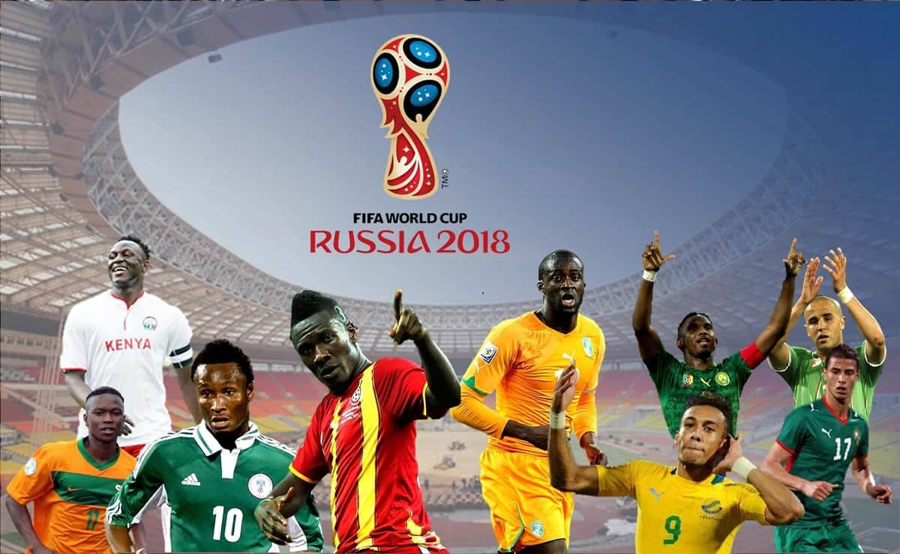African Soccer and the World Cup’s Wealth Divide

Image: At the 2018 World Cup: Nigeria, Egypt, Morocco, Tunisia, and Senegal [PHOTO: AFRICA.COM]
Written by Kgosi Sikelele, Botswana, Southern Africa
When the World Cup happens every four years, the world turns its attention to what is without question the most popular sport on our planet. The beauty of soccer has always been that it can be played anywhere, with whatever ball can be acquired, and with however many players can make up a side. We used to play on the street one v two, or three v three until long after the sun had gone down. Drive around any African city after work and you'd find games going on every available field. It has never been a sport that required a lot of money or equipment to enjoy, and this ease of access has enabled children around the globe lifetimes of sporting enjoyment.
Also because of the accessibility of soccer we in Africa have many capable teams. African teams are generally faster, stronger, and more physically powerful than teams from other parts of the world. Teams from Nigeria, Senegal, Ghana, Ivory Coast, Cameroun, and even Liberia have fielded teams of such immense talent that many of the individual players have been recruited onto the most glamorous and wealthy European teams. One thinks of Etoo, Drogba, and even George Weah the first African player to win the Ballon D'Or, European soccer's highest accolade, to name but a few.
Bear in mind also that the economic might and popularity of soccer is such that the highest paid athletes in the world are usually professional soccer players. As an example Neymar, the star of Brazil's national, was recently acquired by French side PSG for two hundred and fifty million euros. Think about that. A team paid another team a quarter of a billion dollars for Neymar's phenomenal ability with a soccer ball. This fee does not include his salary. That is the amount of money in the game of world soccer in Europe.
On the African continent, where one can argue lies one of the richest veins of raw athletic talent, there is far less wealth for sport. Historically many African teams have trained in conditions that would be substandard for their European and Latin American counter parts. This is always foremost in my mind when I see the results of the African teams at the World Cup level. This year five African teams, Nigeria, Egypt, Morocco, Tunisia, and Senegal, made it to the World Cup and none of them survived past the group stage.
It is true that many African players actually play professionally in Europe; take the Egyptian Salah, for instance, who is one of the best players in the English Premiere League. However, this excellence on European teams does not seem to translate to results at the World Cup level. The wealth divide represented by the dominance and success of Latin American and European teams consistently holds true. It is not for lack of talent that African teams have not achieved to their potential, nor lack of desire--one can only think that it is simply a question of resources. True, to soccer connoisseurs, African teams have had unquestionable skill but poor organization, breaking down in key areas at the wrong moments where more disciplined European teams might better hold their shape. It leads to questions of temperament which are probably unfair.
But there is, for me at least, hope for Africa in the results of two giants of the game, France, and Brazil. Brazil in that it plays the kind of fluid, musical game that Africans can emulate, and France simply because its recent and most successful teams have been composed primarily of players of African origin. Look at the French and Brazilian national sides, these are black and brown teams. And gladly they are amongst the favorites to win again, and perhaps not too long from now an African team will hold the trophy. One can only hope.
Kgosi Sikelele, the writer’s pen name, is a spin on Nkosi Sikelele Africa which means God Bless Africa. It is now the South African national anthem, but was once a song of resistance.
